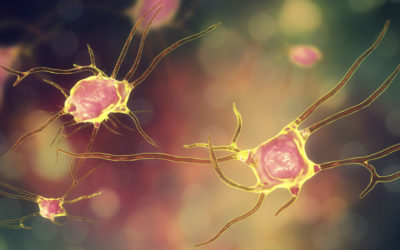Quick Hits
Daily brief research updates from the cognitive sciences

I regularly write on which activities reduce risks of cognitive decline (just last week I reported on how your job can protect your mental abilites with age and also doing household chores).
Different studies, obviously, focus on different aspects of this, at different ages, and with different conditions. This particular study just released was a meta-analysis (a review of multiple studies) of which leisure activities related to dementia.
We probably all know that good lifestyle choices such as good nutrition and exercise keep us physically and mentally healthy, but this study reviewed studies looking at general leisure activities which may include crafts, reading, writing, playing games, playing musical instruments as well as physical activities and social activities (which have larger bodies of research supporting their positive effects).
Su et al., for the American Neurological Association, reviewed included a total of over 2 million people! That’s pretty darn substantial. Within the time of these 38 studies reviewed, 74’700 people developed dementia.
And which activities correlated best with lowest rates of dementia?
Well, they put these into three groups as alluded to above. Mental activities, physical activities, and social activities. Obviously, some of these overlap.
What they found was surprising, or unsurprising, namely that those who engaged with mental activities most in their leisure time showed the lowest risk of developing dementia (23%). This is similar to my review of work, and cognitive reserve. Or simply a case of use it or lose it. But all activities showed a decreased risk with physical activity next most effective (17%) followed by social activities (7%).
Ideally, we would do all three, or something that activates all three. But it does show that we should keep our brain engaged to preserve it from decline.
Luckily for me writing these Quick Hits should be a good way to do that!

Andy Habermacher
Andy is author of leading brains Review, Neuroleadership, and multiple other books. He has been intensively involved in writing and research into neuroleadership and is considered one of Europe’s leading experts. He is also a well-known public speaker, speaking on the brain and human behaviour.
Andy is also a masters athlete (middle distance running) and competes regularly at international competitions (and holds a few national records in his age category).
Reference
Sizhen Su, Le Shi, Yongbo Zheng, Yankun Sun, Xiaolin Huang, Anyi Zhang, Jianyu Que, Xinyu Sun, Jie Shi, Yanping Bao, Jiahui Deng, Lin Lu.
Leisure Activities and the Risk of Dementia: A Systematic Review and Meta-Analysis.
Neurology, 2022; 10.1212/WNL.0000000000200929
DOI: 10.1212/WNL.0000000000200929
More Quick Hits
How Your Brain Eats Itself – To Improve Memory
Your brain eats itself – gruesome eh! Actually this appears to be a good thing most of the time…
A Regular Routine Makes You Happier and Smarter
Recent research just published shows that a regular routine with plenty of activity protects against depression and preserves cognitive function!
Like Smart Humans, Smart Jays Exhibit Self Control
Jays are smart, that is known. Now we know they can exhibit self-control – but only if they are smart themselves.
Your Dog Can Smell When You’re Stressed – And Reduce Stress
The benefits of pets – but it depends on how healthy your relationship is with them.
Neurons in a Dish Learn to Play Pong
A group of neurons in a petri dish can learn to play a computer game – amazing!
Chirp Up! Birdsong Improves Mental Wellbeing
We know birdsong has positive benefits – and this research is showing by just how much…






